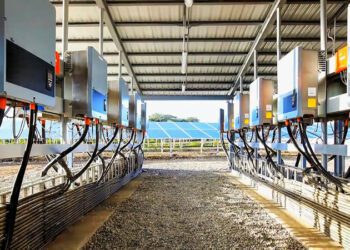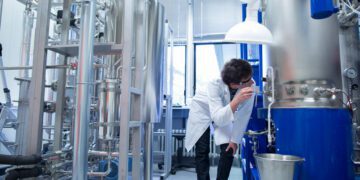From the steam engines of the first industrial revolution to today’s smart factories, manufacturing has always been the backbone of progress. Now, with the advent of Industry 4.0, the sector is undergoing a profound transformation. Embracing digital technologies, interconnected systems, and data-driven insights, modern manufacturing promises efficiency, adaptability, and innovation like never before.
“In the orchestra of production, Industry 4.0 is the maestro, harmonizing man, machine, and data to craft masterpieces of modern manufacturing.”
The Smart Factory: An Ecosystem of Connectivity
At the heart of Industry 4.0 lies the smart factory. Here, machines communicate with each other, processes auto-adjust based on real-time feedback, and the entire production line is integrated into a connected ecosystem, optimizing output and minimizing waste.
IIoT: The Nervous System of Modern Manufacturing
The Industrial Internet of Things (IIoT) equips machinery with sensors that collect data at every step. This constant stream of information, when analyzed, provides insights on performance, maintenance needs, and potential enhancements, paving the way for proactive interventions.
Big Data and Predictive Analytics: Anticipating the Future
No longer is manufacturing just about reacting to orders. With Big Data and predictive analytics, factories can anticipate market demands, adjust production schedules, and manage inventory, ensuring they’re always a step ahead in meeting consumer needs.
Cobots: Collaborative Robots at Work
Gone are the days of isolated robotic arms performing repetitive tasks. Today’s cobots, or collaborative robots, work alongside humans. They assist in intricate tasks, ensure safety, and amplify human capabilities, leading to a synergized workforce.
Additive Manufacturing: 3D Printing Takes Center Stage
3D printing is no longer just a novelty. It’s becoming integral to manufacturing, allowing for rapid prototyping, customization, and even full-scale production of complex components. This flexibility reduces lead times and ushers in a new era of design possibilities.
Cyber-Physical Systems: The Digital Twin Concept
By creating a virtual replica of a physical product or system (a digital twin), manufacturers can simulate, analyze, and optimize performance in a controlled digital environment before implementing changes in the real world.
Resilience and Sustainability: A Dual Mandate
Industry 4.0 is not just about efficiency—it also emphasizes resilience and sustainability. With greater transparency and control, factories can minimize their environmental footprint, adopt sustainable practices, and swiftly adapt to external disruptions.
In conclusion, Industry 4.0 is more than a buzzword—it’s a blueprint for the future of manufacturing. As digital technologies continue to intertwine with traditional production processes, the result will be a manufacturing realm that’s dynamic, responsive, and primed for the challenges of the 21st century.




















